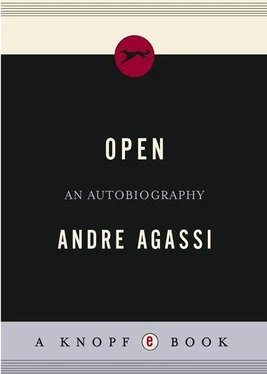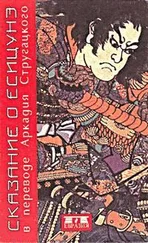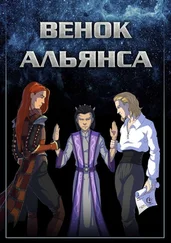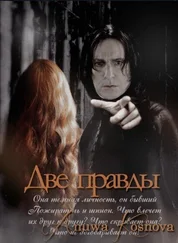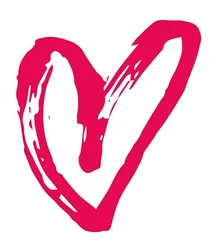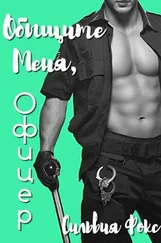Unknown - i a3f9967826fa0ec9
Здесь есть возможность читать онлайн «Unknown - i a3f9967826fa0ec9» весь текст электронной книги совершенно бесплатно (целиком полную версию без сокращений). В некоторых случаях можно слушать аудио, скачать через торрент в формате fb2 и присутствует краткое содержание. Жанр: Старинная литература, на английском языке. Описание произведения, (предисловие) а так же отзывы посетителей доступны на портале библиотеки ЛибКат.
- Название:i a3f9967826fa0ec9
- Автор:
- Жанр:
- Год:неизвестен
- ISBN:нет данных
- Рейтинг книги:5 / 5. Голосов: 1
-
Избранное:Добавить в избранное
- Отзывы:
-
Ваша оценка:
- 100
- 1
- 2
- 3
- 4
- 5
i a3f9967826fa0ec9: краткое содержание, описание и аннотация
Предлагаем к чтению аннотацию, описание, краткое содержание или предисловие (зависит от того, что написал сам автор книги «i a3f9967826fa0ec9»). Если вы не нашли необходимую информацию о книге — напишите в комментариях, мы постараемся отыскать её.
i a3f9967826fa0ec9 — читать онлайн бесплатно полную книгу (весь текст) целиком
Ниже представлен текст книги, разбитый по страницам. Система сохранения места последней прочитанной страницы, позволяет с удобством читать онлайн бесплатно книгу «i a3f9967826fa0ec9», без необходимости каждый раз заново искать на чём Вы остановились. Поставьте закладку, и сможете в любой момент перейти на страницу, на которой закончили чтение.
Интервал:
Закладка:
My father is livid. In the first place, Peter isn’t listening to my father’s lecture. In the second place, Peter is interfering with my father’s star pupil. My father comes around the net, shouting: That slice is bullshit! If Stefanie had this shot, she would have been better off. He then demonstrates the two-handed backhand he taught me.
With this shot, my father says, Stefanie would have won thirty-two slams!
The two men can’t understand each other, and yet they’re managing a heated argument. I turn my back, concentrate on hitting balls. I train all my attention on the dragon. Occasionally I hear Peter mention my rivals, Pete and Rafter, and then my father responds with Stefanie’s nemeses, Monica Seles and Lindsay Davenport. My father then mentions boxing. He uses a boxing analogy, and Peter howls in protest.
I was a boxer too, Peter says—and I would have knocked you out.
You can say a lot of things to my father. But not that. Never that. I cringe, knowing what’s coming. I wheel just in time to see Stefanie’s sixty-three-year-old father take off his shirt and tell my sixty-nine-year-old father: Look at me. Look at the shape I’m in. I’m taller than you. I can keep you at bay with my jab.
My father says, You think so? Come on! You and me.
Peter is trash-talking in German, my father is trash-talking in Assyrian, and they’re both putting up their fists. They’re circling, feinting, bobbing and weaving, and just before one of them throws hands, I step in, push them apart.
My father shouts, This fucker is talking shit!
That may be, Pops, but—please.
They’re winded, sweating. My father’s eyes are dilated. Peter’s bare chest is beaded with sweat. They see, however, that I’m not going to let them mix it up, so they go to neutral corners. I turn off the dragon, and we all walk off the court.
At home, Stefanie kisses me and asks how it went.
I’ll tell you later, I say, reaching for the tequila.
I don’t know when a margarita has ever tasted so good.
AFTER PLAYING WELL IN THE DAVIS CUP, I lose early in Scottsdale, a tournament I typically own. I play poorly in Atlanta and pull a hamstring. I lose in the third round in Rome and realize, reluctantly, that this can’t go on. I can’t play every tournament. Approaching thirty years old, I must choose my battles more carefully.
Every other interview now is about the end. I tell reporters that my best tennis is ahead of me, and they smile, wincingly, as if they hope I’m kidding. I’ve never been more serious.
When the time comes to defend at the 2000 French Open, I walk into Roland Garros expecting to feel waves of nostalgia. But it’s all different—the place has been renovated.
They’ve added more seats. They’ve redone the locker rooms. I don’t like it. Not one bit. I wanted Roland Garros to stay the same forever. I want everything to stay the same. I hoped to walk on center court every year and conjure up 1999—when life changed. At the news conference after my win against Medvedev I told reporters that I could now leave tennis with no regrets. But one year later I realize that I was wrong. I will always have one regret—that I can’t go back and relive the 1999 French Open again and again.
In the second round I face Kucera. He always has my number. The mere sight of me fills him with a quart of adrenaline. Even when I see him in the locker room before our match, he looks as if he’s just been reminiscing about the time he beat me at the 1998 U.S. Open. He comes out playing superbly, running me ragged, and though I’m keeping pace, I develop blisters all over my right foot. I limp to the side and ask for an injury timeout. A trainer re-tapes my foot, but the real blister is on my brain. I don’t win another game from that point on.
I look up at my box. Stefanie has her head down. She’s never seen me lose like this.
Later I tell her that I don’t understand why I sometimes come apart—still. She gives me insights from her experience. Stop thinking, she says. Feeling is the thing. Feeling.
It’s nothing I haven’t heard before. It sounds like a sweeter, softer version of my father.
But when Stefanie says it, the words go in deeper.
We talk for days about thinking versus feeling. She says it’s one thing not to think, but you can’t then decide to feel. You can’t try to feel. You have to let yourself feel.
Other times, Stefanie knows there is nothing to be said. She touches my cheek and tilts her head and I see that she gets it—that she’s been there—and that’s enough. That’s exactly what I need.
We go to the 2000 Wimbledon. I take great pleasure in watching Stefanie explore London.
At last, she says, she can actually see this beautiful city, because she’s not looking at it through a haze of pressure and injuries. Tennis players travel as much as any athletes, but the stress and rigors of the game keep us from seeing. Now Stefanie gets to see everything.
She walks everywhere, exploring all the shops and parks. She drops into a famous pancake restaurant she’s always wanted to try. It serves 150 different kinds of pancake, and she samples just about every kind, without having to worry about feeling heavy-footed on the court.
True to form, I see nothing in London but my draw. With blinders on I fight my way to the semis. I face Rafter. He’s putting together a beautiful career. Two-time U.S. Open champ.
Former number one. Now they say he’s trying to come back from shoulder surgery, though he’s acing me left and right. When he’s not acing me he’s dancing in behind his serve, letting nothing past. I try lobbing him. I hit what feel like unreturnable shots as they leave my racket, but he always gets back in time. We play for three and a half hours, high-quality tennis, and it all comes down to the sixth game of the fifth set. Trying to put something extra on a second serve, I double-fault.
Break point.
I serve, he hits a crisp return, I net the ball.
I can’t break him back. He’s landing 74 percent of his first serves, and he first-serves his way into the final. He’s earned the right to play Pete for the championship. I wanted to play Pete with Stefanie watching, but it’s not to be. A year ago I beat Rafter here in the semis, when he felt the first twinges in his shoulder. Now he comes back and beats me in the semis with his shoulder fully healed. I like Rafter, and I like symmetry. I can’t argue with that story line.
Stefanie and I fly home. I need rest. Then the bad news starts pouring in. My sister Tami has gotten a diagnosis of breast cancer. Days later, my mother gets the same diagnosis. I give up my spot on the Olympic team going to Sydney. I want to spend as much time as possible with my family. I need to shut down for the year, until January at least.
My mother won’t hear of it.
Go, she says. Play. Do your job.
I try. I go to D.C., but play the way I always do when I can’t concentrate. Against Corretja I break three rackets in anger and lose in two spiritless sets.
At the 2000 U.S. Open, I’m the number one seed. The favorite to win it. On the eve of the tournament, I sit with Gil at the Lowell Hotel, feeling not favored, but fucked. It should be a happy time. I could win this thing, I could shock the world. And I don’t care.
Gil, why go on?
Maybe you shouldn’t.
Why do I feel—this way—the old way—again?
It’s a rhetorical question. Kacey is fully recovered, thriving, talking about college, but Gil never forgets what it’s like to have someone you love lying in a hospital bed. He knows what I’m saying without my saying it: Why must the people we love suffer? Why can’t life be perfect? Why, every day, somewhere on this earth, does someone have to lose?
You can’t play, Gil says, unless you feel inspired. That’s your nature. That’s always been your nature, since you were nineteen years old. But you can’t feel inspired unless the people around you are OK. I love you for that.
Читать дальшеИнтервал:
Закладка:
Похожие книги на «i a3f9967826fa0ec9»
Представляем Вашему вниманию похожие книги на «i a3f9967826fa0ec9» списком для выбора. Мы отобрали схожую по названию и смыслу литературу в надежде предоставить читателям больше вариантов отыскать новые, интересные, ещё непрочитанные произведения.
Обсуждение, отзывы о книге «i a3f9967826fa0ec9» и просто собственные мнения читателей. Оставьте ваши комментарии, напишите, что Вы думаете о произведении, его смысле или главных героях. Укажите что конкретно понравилось, а что нет, и почему Вы так считаете.
